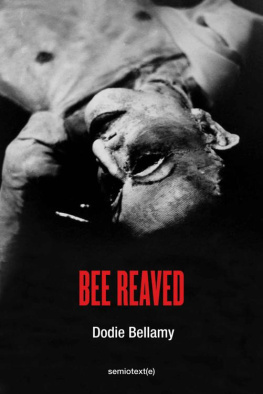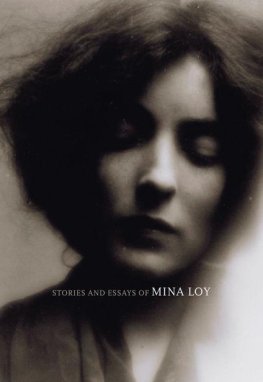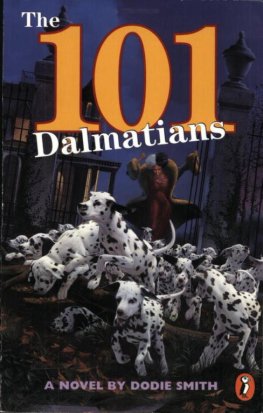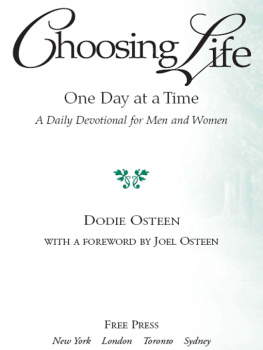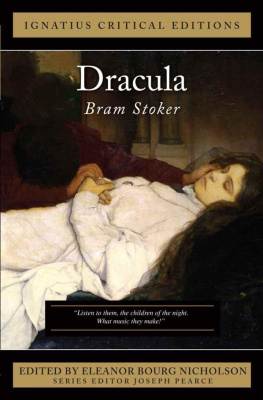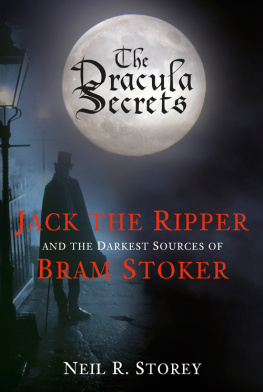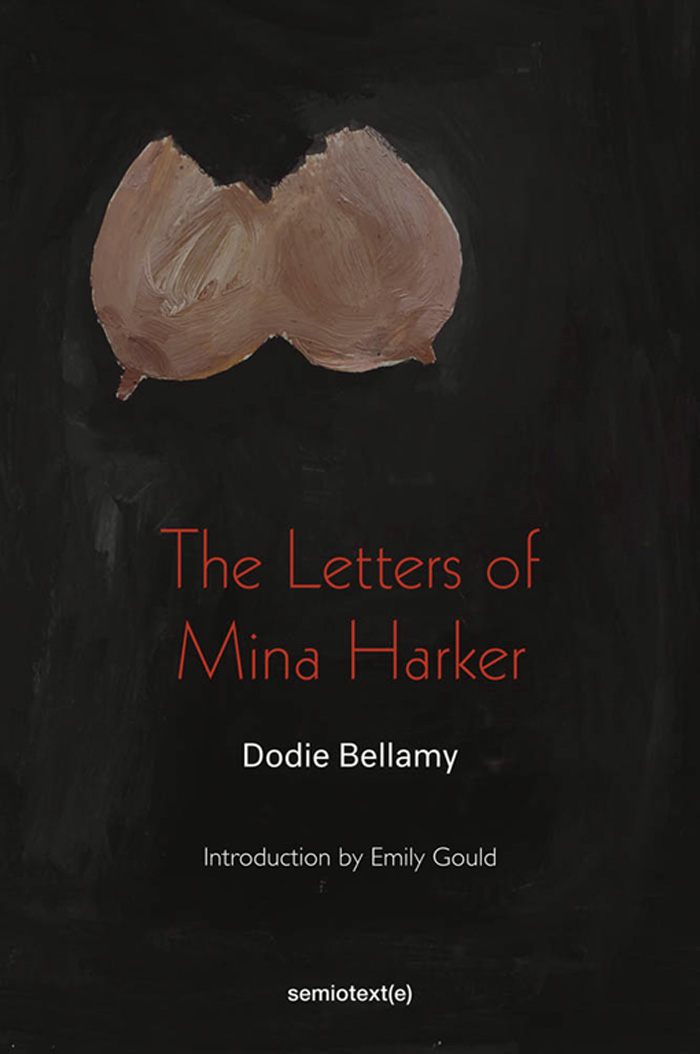Contents
Guide
SEMIOTEXT(E) NATIVE AGENTS SERIES
1998, 2021 Dodie Bellamy
Introduction 2021 Emily Gould
All rights reserved. No part of this book may be reproduced, stored in a retrieval system, or transmitted by any means, electronic, mechanical, photocopying, recording, or otherwise, without prior permission of the publisher.
Published by Semiotext(e)
PO BOX 629, South Pasadena, CA 91031
www.semiotexte.com
Cover: Laure Prouvost, From The Drawer, We Are Staring At You, 2017.
Courtesy of the artist and Galerie Nathalie Obadia, Paris / Brussels.
Back Cover Photography: Hedi El Kholti
Design: Hedi El Kholti
ISBN: 978-1-63590-159-7
Distributed by The MIT Press, Cambridge, Mass. and London, England
d_r0
For Kevin Killian, always.
Introduction by Emily Gould
I loved it when my tits or my cock or my asshole would destroy my own ego with their needs, writes Dodie Bellamy in The Letters of Mina Harker. It's true that these body parts and many others assert themselves vehemently throughout the text, which is already a riot of warring impulses and contradictory or just chorusing voices. Most writing strives to unify impulses, to find harmony between the heart (or whatever) and the mind, the corporeal and the spiritual, the story and its narrator. Dodie begins this book by disassembling that expectation, mocking it as she discards it, bringing it up again and again only to find it eternally lacking. Formal contrivance can never compete for long with what's real and right in front of us. This book interrupts itself often to critique itself, or tell the story of its own creation, or take a break from itself to eat a snack, jerk off, begin again.
I have to admit, the first time I attempted to read this book circa 2012, I didn't get it. I came to it because I was obsessed with diaries and had loved Dodie's then-latest book, which was a diary of an affair with a shitty buddhist teacher that she initially serialized as a blog. The central conceit of Mina Harkerthat the minor character from Dracula has been transported to mid-80s San Francisco, in order to possess the body of Dodie Bellamy and correspond with her clique of queer poets, artists and theoreticiansseemed arbitrary to me, or worse, overdetermined: vampirism standing in for AIDS, yikes. I had entered the Dodieverse via a more straightforward strain of her writing. Reading the buddhist, I was never wondering what Dodie meant. But in Mina Harker, as the first-person voice trails off midsentence or shifts into italics, the reader is never exactly sure who is speaking. The fictive Dodie and Mina and the author Dodie document each others existence in real time. The overall impression is of a huge box of tangled jewelry dumped out on the bed, some of it tarnished, some of it obviously fake, but with precious gems mixed in and not always readily apparent. At the time of my first reading, I didn't have the patience to sift. It had not yet occurred to me that the pile itself could be the treasure. Bad metaphors are the only way we can approach the really important things, don't you agree?
The first letter, dated July 3, 1986, is addressed Dear Reader. In it, we meet Mina, who is desperate to set the record straight about Dracula, Jonathan Harker, and Van Helsing. We also meet Dodie, whose voice alternates sometimes interchangeably with Mina's. July 3rd was her wedding day. At first being married seems as much of a postmodern goof as any of the book's other antics, getting off on the conventional subversion of a gay man and a queer woman dressing up and promising til death. 35 years later, this book is a document of one of the early years of one of the greatest and most artistically productive marriages of all time. Though Dodie describes and addresses several other love affairs in this book, Kevin Killian is the constant, the book's inciting presence and its reason for being. Their love is incandescent, funny and tragic and palpable in every sentence of the book. He is both larger-than-life sex god and droll observer, torrid bodice-ripper and quotidian meal-sharer. He and Dodie spend a lot of time watching rented videocassettes. He edits the book that he's in: Not another sex scene! KK tosses my manuscript on the coffee table, It would be nice if the reader could occasionally see me doing something besides coming. Moreso, even, than the transcendent sex scene that precedes it, this bit of dialogue is a portrait of ideal partnership.
Mina and Dodie write to Sam DAlessandro both before and after his death from AIDS at age 31. Death is as omnipresent in this book as sex, intertwined with it exquisitely and painfully. Dodie wishes to be like Sam, in writing and in life: I'd love to live in your writing, to fuck with abandon as if that were the easiest thing in the world to come by. After he dies, she writes to him as if he were still alive, memorializing by telling him about himself: the Sam I knew was a typhoon of sex and hate, he loved the scars of others but flaunted his own beauty. She doesn't worry about boring him with her newsy dispatches from the world of corporeality, her love affairs and meals and outfits. This way of mourning could chafe or seem callous, but it's real. Mina/Dodie keeps a photo of Sam to stare at as she writes: Your eyes will remain unreadable to me, will never revealbut that's not the point, is itthe point is to look, not in horror not in pity or even in compassion, but to look as precisely as possible at the ever-wavering presence right in front of onethis is the closest beings as imperfect as we can come to love.
Dodie's descriptions of and evidence of graphomania make me jealous. She describes heading into a caf for a caffeine and diary-writing fix. She marries the ephemeralthe intrusive-thought horror movie fantasies, the embarrassing half-thought that flits through the body and mind during sexwith observations that reverberate with import. The sex scenes that KK called out for being too omnipresent in the book are revealed necessary, vibrant documents of moments that usually fade as fast as an orgasm. Since poets are fucking, language itself is a part of the sex act, and writing itself is also eroticized, ie, my breasts are no longer breasts but titties just the thought of keyboarding the word titties excites me say it . Writing and sex are the same in this book. It feels radical, in our pleasure-starved and inspiration-stunted moment, to encourage or confess an appetite for either.
The Letters of
Mina Harker
July 3, 1986
Dear Reader,
KK says all horror novels begin with the locale and a description of the weather, The Reader likes to feel situated. It's a cool clear San Francisco night, streetlights diffuse the vast panoply of the heavens but if you drive an hour north the stars are astonishing, the sky speckled like the black-suited shoulders of a guy with really bad dandruff, so many holes in the black your heart speeds for a moment what if the black collapses a misty glow flows along my recumbent silhouette, long white gown, long white neck, a livid face leans toward the bed, translucent claws lift my hem immobile thighs, white, white over my breasts floats Nosferatu's head, an exaggerated egg-shape, powdery with pointed ears, his lips stretch open pencil-thin, taut I am so aroused my clit flicks like a tongue so tender is his bite but I will never love him, he's too weird too intense from my open throat dark rivulets curve sucking sounds in stereo suck across the suck dim air of the Roxie Theater and suck dissolve in the audience's laughter


